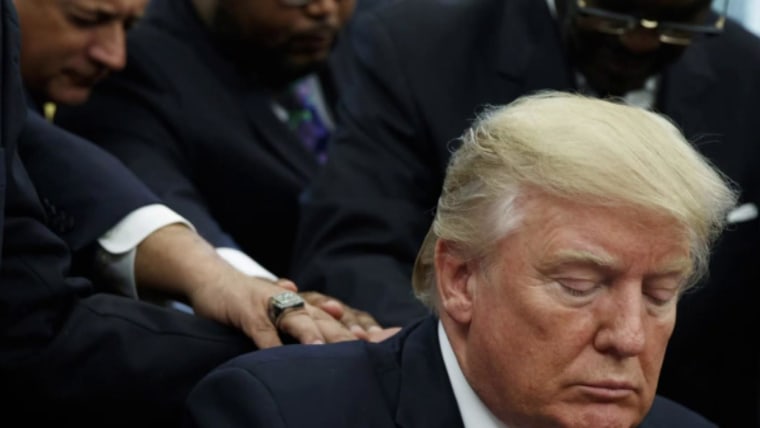‘How Billy Graham weaponized white evangelical Christian power in America
“Is Billy Graham’s legacy religious fervor or political polarization? It’s the question at the center of “Billy Graham,” a documentary that airs this week on many PBS stations across the U.S. The documentary, by Sarah Colt Productions, covers the life of “America’s Pastor” in rich detail, from his rise to power until his death in 2018. While Graham is at the center of this story of religion, presidents and power — told through reams of archival footage and a cast of historians (myself included) — the complex nature of Graham’s true impact looms throughout.
Graham burst onto the media and political scene in the 1950s because of his scary messages about communism and godlessness.
Historically speaking, Graham’s most enduring legacy may be his aligning of evangelical Christianity with political influence and fear. Fear has always been an important part of evangelical Christian messaging in America, whether about the end times, communism or anxiety about the American way of life “disappearing” due to demographic and social changes.
Indeed, Graham burst onto the media and political scene in the 1950s because of his scary messages about communism and godlessness. “I believe today that the battle is between communism and Christianity,” he said in 1952. “And I believe the only way that we’re going to win that battle is for America to turn back to God and back to Christ and back to the Bible at this hour! We need a revival!”
Graham made that statement as he preached from the steps of the U.S. Capitolduring his Washington, D.C., revival, held from Jan. 13 to Feb. 7, 1952. That revival meeting set the groundwork for the National Prayer Breakfast, which began in 1953 with President Dwight Eisenhower — at the insistence of Graham.
The National Prayer Breakfast continues today, and Graham’s imprint on the intersection of religion and politics continues. White evangelical support for former President Donald Trump in the 2020 election cycle stemmed in large part from his connection to leaders like Franklin Graham and Jerry Falwell Jr. Both men, sons of famous religious leaders, followed in their fathers’ footsteps, and both have made careers from promoting fear, faith and political allegiance to Republicans. Taking this polarizing alchemy of faith and politics one step further, however, this second generation is much more likely to embrace Christian nationalism, which in turn incentivizes political leaders to make Christian nationalism part of their stump speeches.
Graham’s desire for the nation to be “One nation under God” was built on his belief that if the nation turned to God, blessings would follow. His nascent Christian nationalism was naively built on the belief that love of God and love of country would be enough to unify and protect America. It was not. Now, the memory of the Jan. 6 insurrection and the religious symbols surrounding it arestark reminders of how Christian nationalism can be deployed against the government and even democracy itself.
Today, socialism, not communism, is the buzzword more often used by evangelicals and politicians to combat policies and political leadership they oppose. Graham’s attitudes toward civil rights and homosexuality and his famous “Billy Graham rule” were part of his message about morality. Increasingly, morality is used as a cover for evangelical political power, which is exerted through the courts. The reshaping of laws surrounding abortion andtransgender issues follow this playbook.
Yet, morality is more often replaced by hypocrisy in discussions of prominent evangelicals in the news. Franklin Graham was a major proponent of birtherism, and Jerry Falwell Jr.’s “traditional” marriage imploded amid lawsuits and scandal. Evangelicals are the most likely group not to be vaccinated in America, and preachers routinely express their fears about the coronavirus vaccine and the loss of “freedom” represented by masks. Many white evangelicals, like Graham, want to designate racism and discrimination as personal sin only, meaning they want to avoid reckoning with the nation’s history.
More from MSNBC Daily
Must reads from Today's list
Thomas Jefferson’s appeal for the separation of church and state could not foresee the entrance of a religious figure such as Graham, who would crush the divide between the two with his charismatic preaching. Nor could Jefferson imagine how religion would one day be part of a determined effort to undermine an election.
There’s no doubt Billy Graham loved America. But as the "American Experience" special highlights, his message of the gospel evolved into a hardline political stance that still continues to divide the nation. Reassessing Graham’s legacy, and his words, is an important step in understanding how evangelical beliefs have fueled polarization, even as they have given community and comfort to millions.“

No comments:
Post a Comment